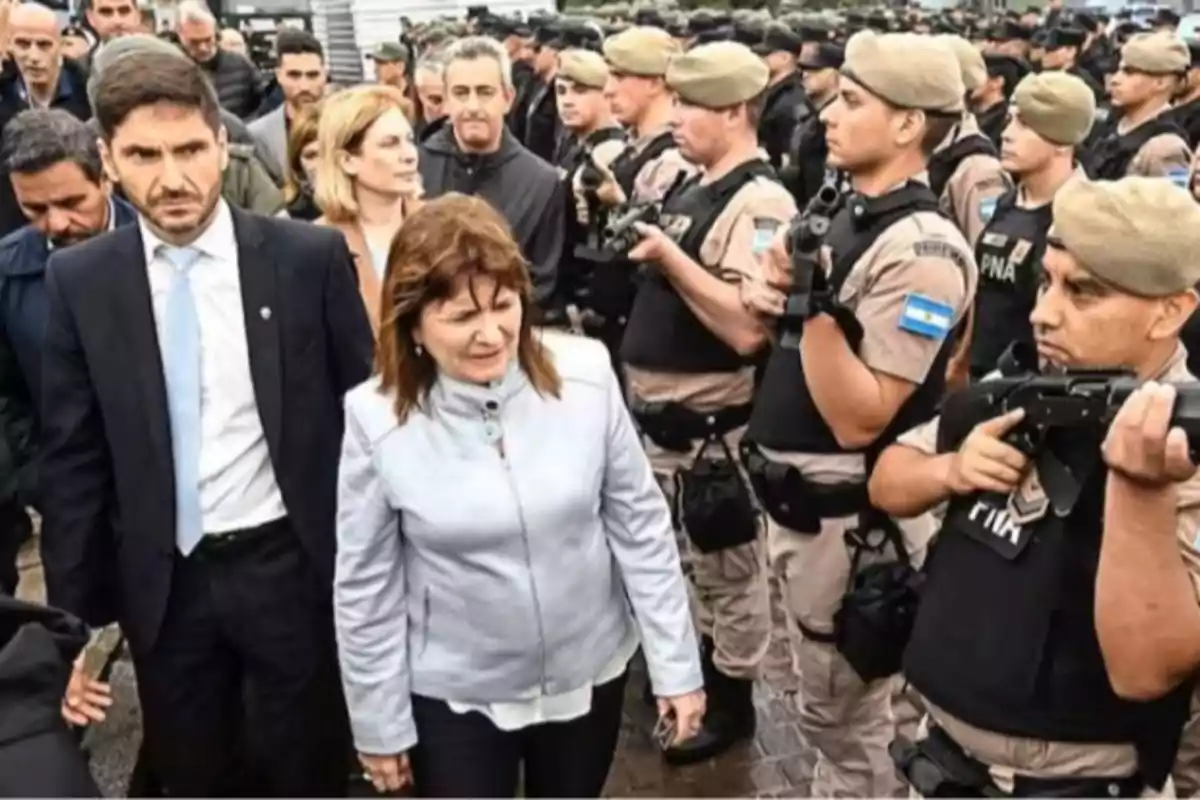
Rosario under the Anti-Mafia Law: what changes for organized crime
The Ministry of Security chose Rosario as a pilot zone. Pugnaloni highlighted the efficiency of the new regime
In an unprecedented measure in the country's recent history, the Ministry of National Security, led by Patricia Bullrich, chose Rosario as the first area in the country where the Anti-Mafia Law (No. 27,786) will be applied. This law allows for significantly harsher penalties—up to double—and equal for all members of a criminal organization, regardless of their role.
This means that both the intellectual author of a crime and the material author, or even those who collaborated in a secondary manner, will receive the same maximum penalty provided for the most serious crime committed by the gang.
Rosario: epicenter of an unprecedented criminal policy
The selection of Rosario responds to the intensification of narco-terrorism that paralyzed the city in March 2024, when a wave of murders, shootings, and public intimidations forced the suspension of transportation, classes, and service station operations. Governor Maximiliano Pullaro then requested the intervention of the Crisis Committee, which led to the current resolution.
According to the National Criminal Intelligence Directorate, gangs operating in Rosario meet all the requirements of the Anti-Mafia Law: repeated commission of serious crimes, territorial control, and annihilation of rivals.
Pugnaloni: "deep improvements against organized crime"
One of the main proponents of the deployment of this regulation is Germán Pugnaloni, national director of Crime Prevention, who stated in a conversation with Infobae that "the implementation of the Anti-Mafia Law, combined with a jurisdiction where the accusatory system is proving to be notably more efficient than the previous system, is going to bring deep improvements in investigations against organized crime."
The Anti-Mafia Law enables new procedural tools to dismantle complex organizations: massive raids, chained phone interceptions, early confiscation of assets, and the elimination of judicial benefits based on hierarchy within the criminal structure.
Harsher sentences and federal operations
The special regime raises the penalty for illicit association from the current 3 to 10 years to a new range of 8 to 20 years in prison. Additionally, all members of an organization will be considered co-authors of the most serious crime, regardless of their specific participation.
The application of the law is part of the Flag Plan, a national strategy of joint deployment between federal forces and the Public Prosecutor's Office. The resolution was published in the Official Gazette, based on international treaties such as the Convention against Transnational Organized Crime and regulations like the Internal Security Law.
The Ministry of Security emphasized that it is an essential tool to dismantle criminal structures, especially those linked to drug trafficking, money laundering, extortion, and human trafficking.
More posts: